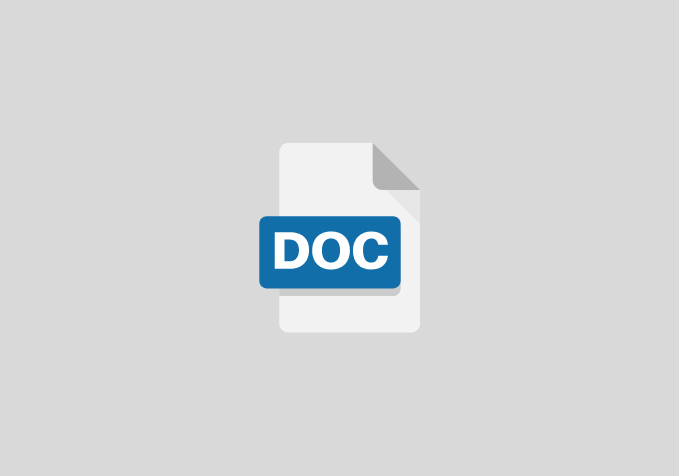The Use of Social Media in Political Mobilization During the 2019 General Election in Nigeria
CHAPTER ONE
Objectives of the study
Main objective
The main objective of this study is to examine the use of social media in political mobilization during the 2019 general election in Nigeria. This study will also examine the role of social media in political mobilization with special reference to the actual effect of Facebook and Twitter on voter‘s and the factors determining the behavior and attitudes that an ordinary voter adopts based on available information gotten on the social media.
Specific objectives
- To find out the role played by social media in political mobilization in 2019 general election.
- To determine the level of influence social media has on the success of 2019 general election.
- To find out factors that influence mobilization of the social media during 2019 general election.
- To identify the lesson from the role social media play in 2019 general election
CHAPTER TWO
Literature review
The use of social media in politics has continued to grow in recent times. Since Barack Obama broke the world record in the history of social media use for political purpose during the 2008 US presidential elections, many nations and politicians across the globe have continued to embrace the platform to mobilize their citizens and candidates towards active participation in the political process. (Okoro and Kenneth, 2013).
Empirical framework
Nigeria had the first real test of social media use for political participation during the 2015general elections. The 2015 general elections offer a unique context and opportunity to examine the use of social media in elections, especially the usefulness and applicability of social media in the electoral environment. Although it seems obvious that social media contributed in no small measure to the success of the 2015 elections, but there are lot of misusage and problems that arise from the social networking community. It is pertinent to understand specifically how particular stakeholders in the 2015 elections, like INEC, politicians/political parties, the electorate, and SOs, used the social media during the elections, including INEC, politicians/political parties, the electorate, and CSOs.
CHAPTER THREE
Methodology
Research design
The methodology this study intends to employ is the survey method. The study will use survey method which is aimed at collecting samples from a population in order to examine the distribution incidence and interaction of the phenomenon in the study.
The study intends to use survey research method because it provide equal chance for the people to participate in the study and give out their opinion on a given issue of public interest. According to Onwukwe (2015), ―survey research is concerned with the collection of data for the purpose of describing and interpreting a certain condition, practice, beliefs, attitudes, etc.
Sources of data
The data for this study will be generated from two main sources; Primary sources and secondary sources. The primary sources will include questionnaire, interviews and observation. The secondary sources will include journals, bulletins, textbooks and the internet.
Method of Data Analysis
The study will employ the simple percentage model in analyzing and interpreting the responses from the study participants.
CHAPTER FOUR
Research questions
- What is the role played by social media in political mobilization in 2019 general election?
- To determine the level of influence social media has on the success of 2019 general election.
- To find out factors that influence mobilization of the social media during 2019 general election.
- To identify the lesson from the role social media play in 2019 general election.
CHAPTER FIVE
Theoretical Framework
The Uses and Gratification theory is relevant to the study, and appear to be the basic theory that provides a framework for assessing and understanding the study. It is hoped that the finding will ultimately contribute to it. The underlying basis for the theory matches the quest for the study. Uses and gratifications theory is ‘an approach to understanding why and how people actively seek out specific media to satisfy specific needs.’ UGT as it is sometimes described, is also defined as an audience-centered approach to understanding mass communication.’ In a journal article (Ruggiero, 2000) on the theory’s use in the 21st century, Ruggiero claimed that uses and gratification theory was an aspect of media effects theory in the early 1930s, but was perfected as one independent branch of media effects theory by McQuail in 1994. Earlier studies that attempted to measure how specific media attract and hold the audiences’ attention, or sought to discover motives and selection patterns of audiences for the new mass media include Cantril and Allport (1935).
References
- Abubakar, A.A (2011) Political participation and discourse in social media during the 2011 Presidential electioneering. Paper presented at the Acce, Covenant University, Ota. September 2011.
- Adelabu, O. (2011) The role of social media in democratic mobilization in Nigeria. Paper Presented at the Acce, Covenant University, Ota. September 2011.
- Adeyanju & Haruna (2012) Uses of sms in campaigns: An assessment of the 2011 general
- Elections and post election violence in northern Nigeria, in des wilso (ed.) The media, terrorism & political communication in Nigeria. Uyo; Acce.
- Adibe & Odoemelam (2012) An appraisal of the knowledge and use of icts among residents Of Nsukka urban of Enugu State and Abakaliki capital of Ebonyi State, in Aliede (ed.) Journal of contemporary communication, vol 1 no 1. Enugu: prime targets ltd.
- Adibe, Odoemelam & Chibuwe (2011) Social media, electioneering and sustenance of Democracy in Africa: A swot analysis. A paper presented at the African media and democracy conference (AMDC), Accra, Ghana.
- Adibe, Odoemelam & Orji (2012) Social media and political participation in Africa: issues, Problems and prospects. Paper presented at the Acce, FUT Minna, November 2012.
- Akinwunmi, A.O. (2011) New media, political campaigns and violence in Nigeria. Paper Presented at the Acce, Covenant University, Ota. September 2011.


